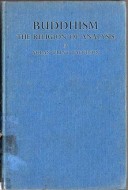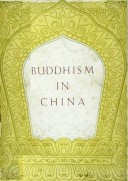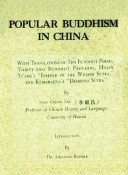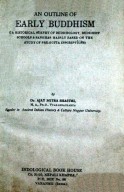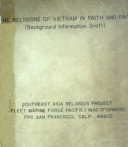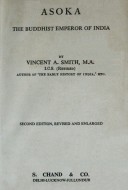Tìm Sách
Sách tiếng Anh-English >> Buddhism The Religion of Analysis
Thông tin tra cứu
- Tên sách : Buddhism The Religion of Analysis
- Tác giả : Nolan Pliny Jacobson
- Dịch giả :
- Ngôn ngữ : Anh
- Số trang : 202
- Nhà xuất bản : George Allen & Unwin Ltd. London
- Năm xuất bản : 1966
- Phân loại : Sách tiếng Anh-English
- MCB : 12010000005142
- OPAC :
- Tóm tắt :
Buddhism The Religion of Analysis
By Nolan Pliny Jacobson
London
George Allen & Unwin LTD
Ruskin house Museum Street
PREFACE
Let it be admitted at the outset that I have tried to write a convincing modern interpretation of the teachings of the Buddha. I have written out of a conviction that Buddhism, especially in its early Theravada sources, has something significant to say to modern man. It seems to me the West provides new ground for an appreciative understanding of what the Buddha taught. I have described this new ground as fully as possible, and I have sought to view the Buddha’s teachings in this new frame of reference.
Some occasions for misunderstanding and unhappiness with the result may be forestalled if my method is understood at the outset. Concepts and points of view now current in Western thought have been drawn upon freely, but only with the intention of coming to a better understanding of the Buddha, never with a view of making comparisons of any kind. To put it simply, I have not tried to produce a comparative study. It has always seemed to me that we should try as hard as we can to understand what someone says before we draw comparisons. Whenever it appears that some sort of similarity is being emphasized – with Existentialism, Logical Empiricism, Freudianism, or Christianity – the similarity is incidental and has only one purpose, that of allowing the Buddha to speak in perspectives that modern man understands.
CONTENTS
Preface
I. Introductory
II. The Practical Bent of Buddhism
III. New Ground for Mutual Understanding
IV. The Indispensable
V. Meditation and Analysis
VI. The Buddhist Analysis of Culture
VII. The Consummatory Experience
VIII. The Buddha and Hum
Bibliography
Notes to the Text
Index
 Facebook
Facebook
 Google
Google
 Google+
Google+
